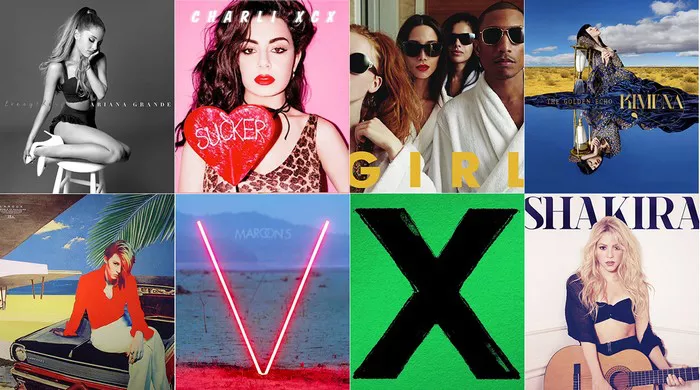Pop music, often simply referred to as “pop,” is a genre that has dominated the music industry for decades. It has been a driving force in shaping cultural landscapes, influencing fashion, and reflecting the societal values of its time. To truly understand when pop music was most popular, we must take a journey through its history, exploring key eras, iconic artists, and the cultural phenomena that propelled it to its zenith.
The Birth of Pop Music
Pop music, short for popular music, has its roots deeply embedded in the early 20th century. However, it wasn’t until the mid-1950s that it began to take its modern form. In this nascent stage, pop music was characterized by catchy melodies, simple chord progressions, and lyrics that often revolved around themes of love and youthful exuberance.
One of the pioneers of this emerging genre was Elvis Presley, who is often regarded as the “King of Rock and Roll” but also made significant contributions to the pop music landscape. His electrifying performances and charismatic persona made him a global sensation, transcending music and becoming a cultural icon.
The Swinging Sixties: Pop Music’s Golden Age
If we were to pinpoint a time when pop music was at its peak, the 1960s undoubtedly stand out as the golden age. This was a transformative decade marked by immense social and political change, and the music of the era mirrored these shifts.
Bands like The Beatles, The Rolling Stones, and The Beach Boys are synonymous with this period. The Beatles, in particular, achieved unparalleled success and popularity, revolutionizing the music industry with their innovative sound and songwriting. Their influence on pop music is immeasurable, as they pioneered new recording techniques and pushed the boundaries of what was considered mainstream.
The mid-1960s also saw the emergence of the Motown sound, a genre within pop music characterized by its smooth melodies, soulful vocals, and catchy hooks. Artists like Marvin Gaye, The Supremes, and Stevie Wonder left an indelible mark on the pop music landscape during this era.
The 1980s: A Decade of Pop Music Icons
While the 1960s may be considered the golden age of pop music, the 1980s were a close contender. This decade brought us a plethora of pop music icons who not only dominated the charts but also left a lasting impact on popular culture.
Madonna, often referred to as the “Queen of Pop,” burst onto the scene in the early 1980s and quickly became a global sensation. Her provocative image and hits like “Like a Virgin” and “Material Girl” defined the era’s pop music landscape.
Michael Jackson, the “King of Pop,” also rose to prominence during this period. His album “Thriller,” released in 1982, remains the best-selling album of all time, and its music videos, including the iconic title track, set new standards for the visual representation of pop music.
The Digital Revolution: Pop Music in the 21st Century
As we move into the 21st century, pop music continues to evolve and adapt to the changing technological landscape. The digital revolution, marked by the rise of the internet and digital streaming platforms, has had a profound impact on how pop music is created, distributed, and consumed.
Artists like Beyoncé, Rihanna, and Justin Bieber have harnessed the power of social media and digital platforms to engage with their fan base directly. This direct interaction with fans has reshaped the relationship between artists and their audience, making pop music more accessible and interactive than ever before.
Additionally, the globalization of pop music has led to the fusion of diverse musical styles and influences. K-pop, a genre originating in South Korea, has gained immense popularity worldwide, with groups like BTS achieving unprecedented success. This global appeal showcases the enduring power of pop music to transcend borders and cultures.
Pop Music in the 2020s: A Reflection of Contemporary Culture
In the 2020s, pop music continues to be a mirror reflecting the contemporary cultural landscape. Artists are using their platforms to address pressing social and political issues, from climate change to racial injustice. This era of pop music is marked by a heightened sense of social consciousness.
Billie Eilish, an artist who gained fame in the late 2010s and continues to thrive in the 2020s, is known for her introspective and thought-provoking lyrics. Her success exemplifies the desire of the younger generation for pop music that goes beyond surface-level entertainment.
Furthermore, collaborations between artists from different genres have become a hallmark of 2020s pop music. These collaborations often result in genre-blending tracks that defy traditional categorization, appealing to a broad and diverse audience.
Conclusion
In answering the question of when pop music was most popular, we find that its popularity has been a constant thread woven throughout the fabric of music history. From its humble beginnings in the early 20th century to its explosive rise in the 1960s, the 1980s, and its continued evolution in the 21st century, pop music has always held a prominent place in our cultural consciousness.
The enduring appeal of pop music lies in its ability to adapt, evolve, and reflect the ever-changing world around us. It serves as a mirror to our society, capturing the spirit of each era and providing a soundtrack to our lives. Whether it’s the iconic tunes of Elvis Presley, The Beatles, Madonna, or the socially conscious lyrics of contemporary artists, pop music remains a powerful and influential force that shows no signs of fading away. So, when was pop music most popular? One could argue that it has never truly lost its popularity; it has simply evolved with the times, ensuring its continued relevance in the world of music and culture.

